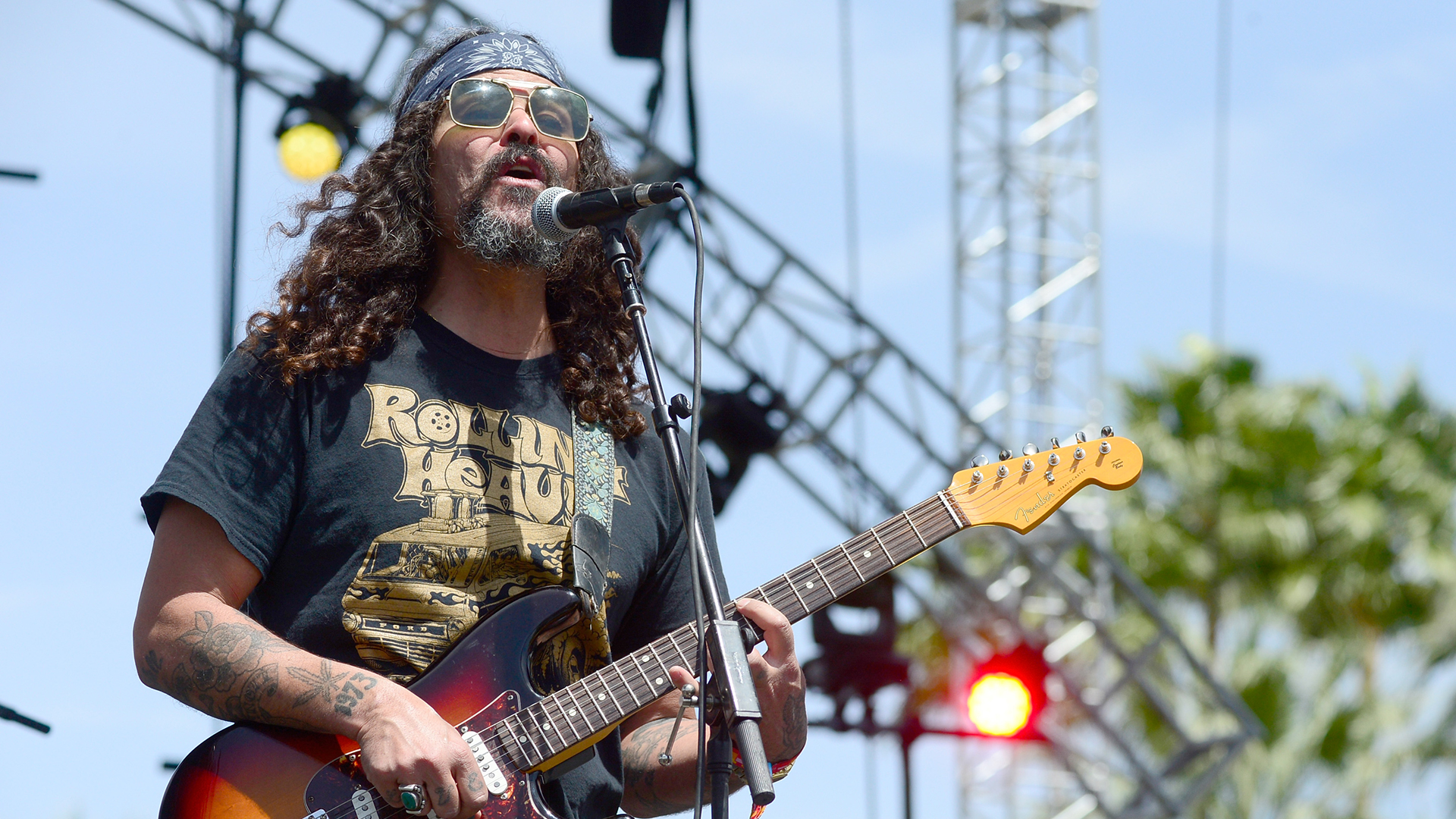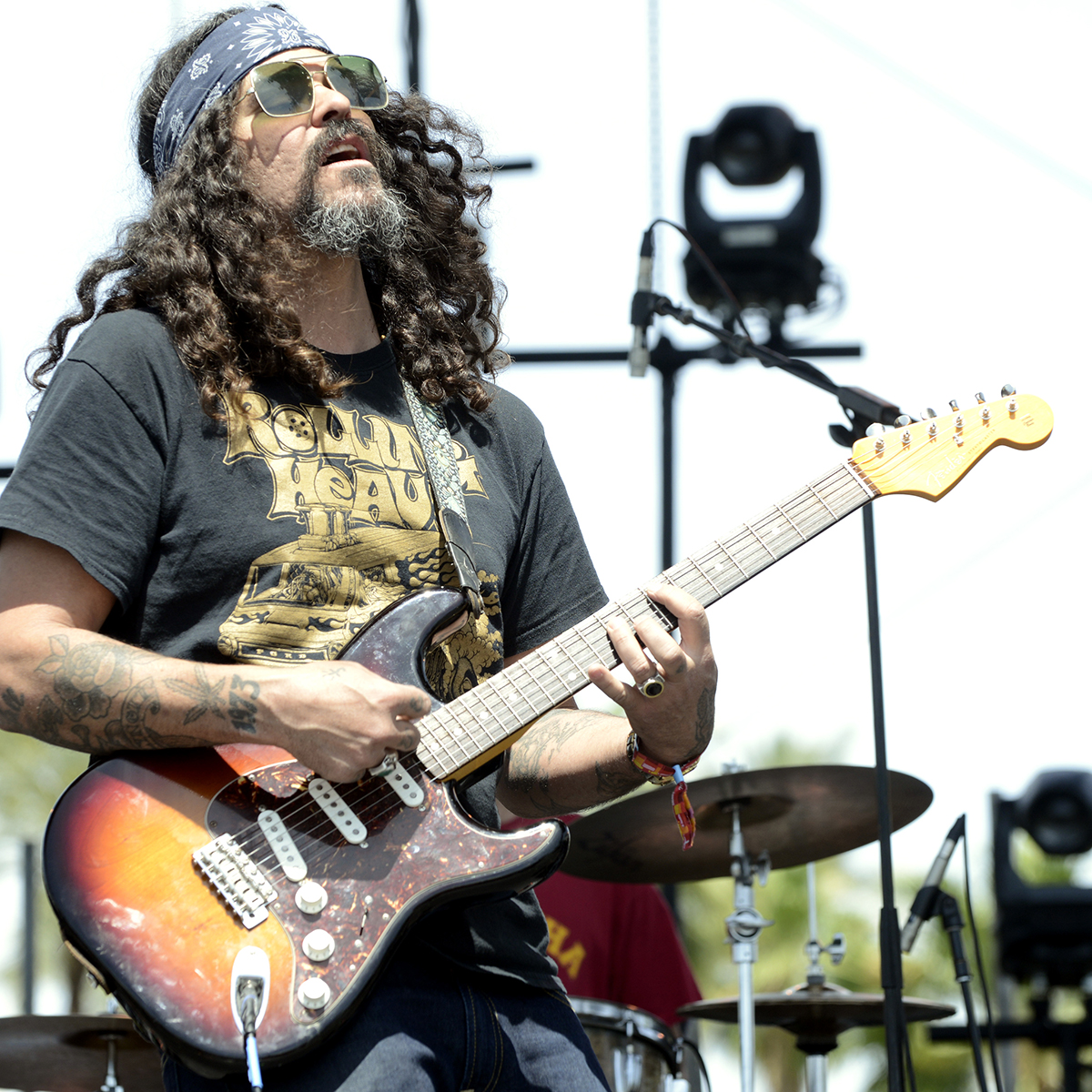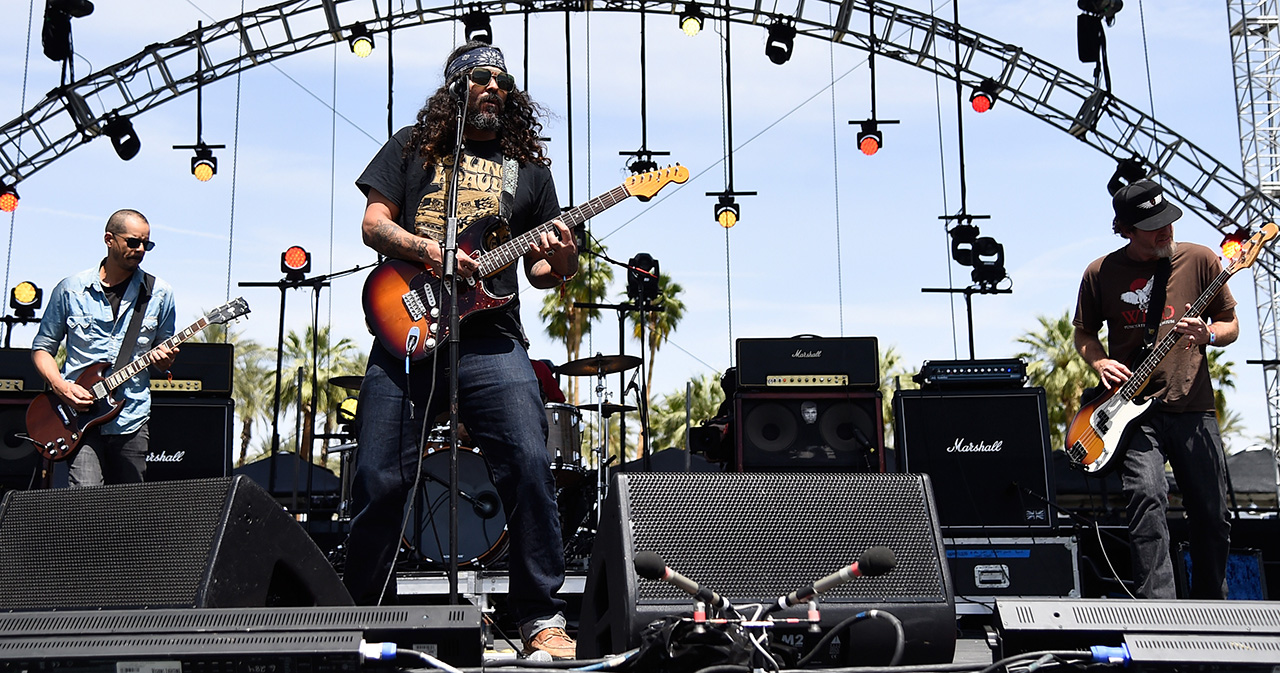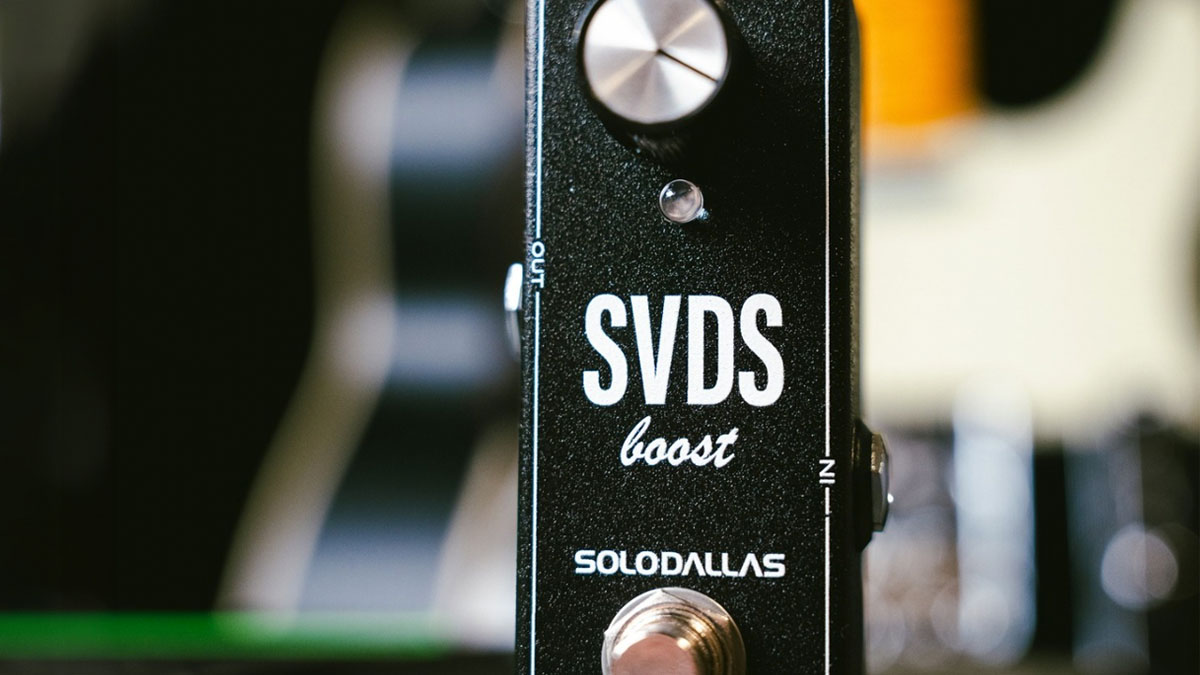“Josh Homme’s guitar playing is very learned and proper. I’m self-taught, and my style is more unorthodox. My guitar is untamed.” Brant Bjork made his name as Kyuss’ drummer – but he found his voice on guitar
The drummer turned guitarist says starting in cover bands can improve your writing skills – and explains why he learned more from the Byrds and the Beatles than playing with Josh Homme in Kyuss

He started as Kyuss’ drummer, but Brant Bjork’s love for guitar won out.”My favorite record? That’s an impossible question,” he says, before adding: “Are You Experienced by the Jimi Hendrix Experience is the closest thing to rock perfection I’ve ever heard.”
Bjork’s new album, Once Upon a Time in the Desert, arrives on September 20 – but he states there’s more to its sound than the title might suggest.
“My music is an extension of my heart, my soul, my mind and my surroundings. A lot of people consider my music to have a ‘desert vibe’ because I grew up in the desert of Southern California. When I listen closely to my music I hear a lot and sometimes a little of the many artists, bands, and eras I’ve listened to since I was young.”
His new band, the Brant Bjork Trio, is as unique in sound as every other group he’s been in, he adds – and he has no interest in resting on whatever legacy he might have.
“I recognize I’ve been making music for a long time,” he says. “But I’m on a creative journey, and my best and most satisfying work may still be way ahead of my time. Maybe not; regardless, the pleasure is to continue. That’s why we call it a trip.”
You’ve got some new music out. Where are you taking influence from?
“Mostly blues and jazz from the ‘50s, classic rock from the ‘60s and ‘70s; and I grew up in the ‘80s, so I naturally hear some of that in my music. My favorite artists aren’t anything out of the ordinary or surprising... Beatles, Stones, Hendrix, Ramones, Bob Marley. I shamelessly like the classics.”
Get The Pick Newsletter
All the latest guitar news, interviews, lessons, reviews, deals and more, direct to your inbox!
How does the music with your Trio differ from a guitar and songwriting standpoint from your other projects?
“It’s no different than how I would imagine it to be with jazz musicians, in the sense that when you create music with particular musicians, your personal style is going to move a little. I’ve been playing with my drummer, Ryan Güt, for almost 10 years; and I've been playing in one way or another and listening to Mario Lalli for over 30 years – so I’m quite familiar with their musical styles.”
What does your main guitar setup look like these days?
“I’ve messed around with various amps and pedals and tried a handful of guitars; but for the most part, my live setup has been the same for the last 20 years. I play a Fender Squier Strat through an early ‘70s Marshall JMP. I’m running through a Fuzz Face with the fuzz completely rolled off. I also have a wah, a Supro overdrive and a reverb/delay.
“I use my little Marshall practice amp to get a nice broken-up tone. I’ve found that a smaller amp can better simulate a bigger guitar sound when under the sonic microscope that is the studio. The art of making rock records is all about deception. There are the recording arts and the performing arts. They are two different animals.”
Despite what you’ve said, have any interesting gear discoveries helped shape your recent sound?
“When I record, I like doing some of my rhythm tracks with the bridge pickup through my wah set at a mid-scoop. I don’t think it’s anything new, but it’s effective. Direct guitars are always cool sounding and I’ve recorded many over the years. That’s how Roger McGuinn did all his guitars with the Byrds. Of course, he was using his 12-string.
“I’ve never claimed to have a sound – I’m always exploring, and that’s part of keeping things fun. I would describe my sound as being very malleable. If you really listen, Tony Iommi’s guitar sound changes on every Sabbath record. What’s the best one? Impossible. They’re all great.
“I don’t think I have the same guitar sound on any two of my records. I think it’s the same for my live tone: it has always changed a little bit. I would get bored playing the same tone all the time.”
Does the Kyuss sound, vibe, and ethos remain present in your music?
“Back in the days of Kyuss, we were a bunch of young punks, but we were smart enough to know that rock music should be pure, simple – not to be mistaken for easy – organic and fearless. I feel my music then and now still has all those same qualities. I’ve been cooking with the same ingredients for 35 years.

“The more I’ve changed, the more I’ve stayed the same – that’s the astonishing thing about getting older. I’m officially an adult now and I’ve 'grown up’ but I still get the same excitement when I hear Teenage Lobotomy by the Ramones as I did when I was 13 years old.
I hear classical guitar in Josh Homme’s playing – in mine there’s more of a natural blues thing happening. My guitar is untamed
“I like to study songcraft, and I usually do so with my favorite artists. Everyone likes to clown cover bands, but I think that’s why the Beatles and the Stones went on to become some of, if not the best, rock songwriters of all time.
“During their developing years, they were essentially cover bands, and they were learning directly and indirectly how to craft songs by playing the best R&B, blues and original rock ’n’ roll songs around.
“Money can’t buy that kind of education. It doesn’t matter if it’s today or if it was 50 years ago; if you want to create good shit, you gotta study good shit.”
How did playing drums impact how you view the guitar? For example, Dave Grohl has said he sort of sees the fretboard as a drum set.
“I switched because it was getting harder and harder to find a place to put my drums, as I moved around a lot as a young person. Guitar was more convenient – and because I like the guitar so much it brought me a good amount of pleasure.
“As I grew more and more as a songwriter it was a natural transition. I honestly didn’t think about it too much then, and I still don’t. To me, it’s all about rhythm whether you’re playing the guitar, drums, or a kazoo. Maybe that’s what Dave was expressing.”
Though you switched from drums after Kyuss, what did you take away from Josh Homme’s guitar playing?
“I was writing songs for Kyuss on my guitar, but when I was making music with Josh I was hyper-focused on drums so I didn’t take anything away from Josh as a guitar player.

“To me, his approach is very learned and proper. I’m self-taught, and my style is more unorthodox. I also hear more classical guitar in Josh’s playing – whereas, in mine there’s more of a natural blues thing happening. My guitar is untamed.
“Josh had a unique approach to songcraft. He approached it almost like he was orchestrating. Again, not necessarily something that I took away, but I always recognized his musical instinct with intrigue. He does his thing, and he does it effectively.”
When I look back, I don’t see a stoner scene – because it didn’t exist
Looking back, what does the desert/stoner scene mean to you?
“When I look back, I don’t see a stoner scene – because it didn’t exist. I see Kyuss and Fu Manchu doin’ our thing in Southern California, Sleep doin’ their thing up in Northern California, and Monster Magnet doin’ their thing way over in New Jersey.
“We all had our unique styles, but there was some kind of underlying connection. Over the years, that connection turned into a global scene with endless bands. It’s been fascinating to watch it evolve, but I can’t say I’m totally surprised.
“What Monster Magnet, Sleep, Fu Manchu, and Kyuss were all doing in the early ‘90s had substance. We weren’t playing metal, punk, or grunge. We were all playing heavy rock, and we were serious about it.
“The music was real and unapologetic, and people started to recognize it. That’s how movements start. Everything has its origin. It was trippy to have been there to help drop the first seeds in the ground.”
Do you have a favorite Kyuss album?
“I don’t. They’re all unique and have something to offer in their own way. Blues For the Red Sun will always have a special place in my heart because when you make a record like that when you’re 19 years old, you never forget the experience.”
Which of your new songs mean the most to you, and why?
“All my songs, new or old, mean something to me. To try to measure their individual importance or reward would be nonsense. Every record I’ve made is the result of creating, nurturing and releasing a body of work.
“The songs that comprise a record are simply pieces of a particular puzzle. They depend on each other to define the whole. To favor one or the other would be silly.
“A more pragmatic answer would be to simply say it depends on my mood!”
- Once Upon a Time in the Desert is released on September 20th via Duna Records.
Andrew Daly is an iced-coffee-addicted, oddball Telecaster-playing, alfredo pasta-loving journalist from Long Island, NY, who, in addition to being a contributing writer for Guitar World, scribes for Bass Player, Guitar Player, Guitarist, and MusicRadar. Andrew has interviewed favorites like Ace Frehley, Johnny Marr, Vito Bratta, Bruce Kulick, Joe Perry, Brad Whitford, Tom Morello, Rich Robinson, and Paul Stanley, while his all-time favorite (rhythm player), Keith Richards, continues to elude him.
“I knew the spirit of the Alice Cooper group was back – what we were making was very much an album that could’ve been in the '70s”: Original Alice Cooper lineup reunites after more than 50 years – and announces brand-new album
“The rest of the world didn't know that the world's greatest guitarist was playing a weekend gig at this place in Chelmsford”: The Aristocrats' Bryan Beller recalls the moment he met Guthrie Govan and formed a new kind of supergroup









![[from left] George Harrison with his Gretsch Country Gentleman, Norman Harris of Norman's Rare Guitars holds a gold-top Les Paul, John Fogerty with his legendary 1969 Rickenbacker](https://cdn.mos.cms.futurecdn.net/TuH3nuhn9etqjdn5sy4ntW.jpg)




